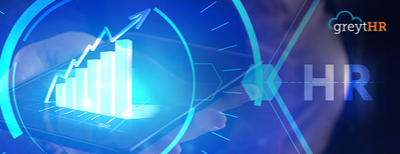A few years back, income tax filing demanded extensive manual effort from both taxpayers and the tax department, posing a significant challenge for millions of individuals and corporations. However, with advancements in technology, particularly in HR software systems and HRMS software, the entire process has undergone a transformative shift. Now, taxpayers can effortlessly file their returns online, eliminating the need for tedious paperwork. Moreover, the system not only validates all provided data but also automates the assessment process, streamlining income tax filing for all stakeholders.
The point here is that systems and structures have been built in such a way that it supports not only external but internal stakeholders as well. It is the same situation in any organisation managing client processes. Narrowing a little bit further down to an HR or Payroll scenario, employees are our internal clients while the government sites or banks are external clients.
So, how do we address the need of engaging employees on internal procedures which require their minimal manual effort?
The answer to that is what is called the Employee Self Service (ESS) portal. Many popular payroll software or SaaS HRMS have ESS portals. Before talking to an HRMS software company, check out all the features of their ESS portal.
We give you more insights on the major considerations, below.
7 Factors to Consider while finding a SaaS HRMS
HR Inputs
Payroll department can receive salary inputs from HR through these portals safely and securely within the payroll system as compared to emails or printouts, which are prone to be missed or misplaced.
Time & Attendance
Time & Attendance data will be input by employees through the ESS portal of the payroll software rather than signing on a manual attendance register. That data will be used by the respective Managers for reviewing the team’s availability on a regular basis. At the end of the month, the Payroll department will use this data from the same system for salary payment purpose.
Leave Management
Employees can review their leave balances online and apply them appropriately though the payroll software. Workflow within the system will route the application to their respective Manager for action. Leaves will automatically get adjusted based on usage and approvals. At the end of a year, Payroll will be able to upload new leave quotas of all employees as per their eligibility for the next year. Leave encashment data can be obtained for final settlements too.
Claim Submission Online
Employees will be able to submit their reimbursement claims online using pre-formatted forms. The forms can be routed to Finance & Accounts dept or to Payroll, as the case may be. Approvals from the Managers can be obtained online through the same system.
Tax Declaration & POI Submission
ESS portal can manage two significant tasks – that is submission of tax plans by employees at the beginning of the year and submission of proof of investments at the end of the year. Plans can be altered online by employees up to the extent allowed by the Payroll department. Validation of proof of investments can be automated to a significant extent in the system to minimize manual work of payroll personnel
Online Payslips and TDS Report
Payslips of any period can be viewed by employees using individual login in the portal in a safe and secure manner. Additionally, the annual TDS report (Form-16) can also be viewed, stored, saved, printed or forwarded to anyone at any point in time.
Query Management
Lastly, employees can log in to the portal to look for any HR/Payroll related FAQs or also in some cases, chat with payroll personnel in order to clarify any doubts on HR/Payroll matters.
The Bottom Line:
Looking for the best HR management software with top-notch ESS Portal services? SaaS HR Systems like greytHR (/) have been in this industry for many years to provide the very solution that you are looking for – be it a small, medium to large organisation. Check out greytHR payroll software (https://www.greythr.com/payroll-software/), smart and easy to use software built specially for small and medium businesses.
Related Blogs:
7 Ways HRIS Applications Are Beneficial To Your Business
How to Choose the Best HR Management Software for your Business?








